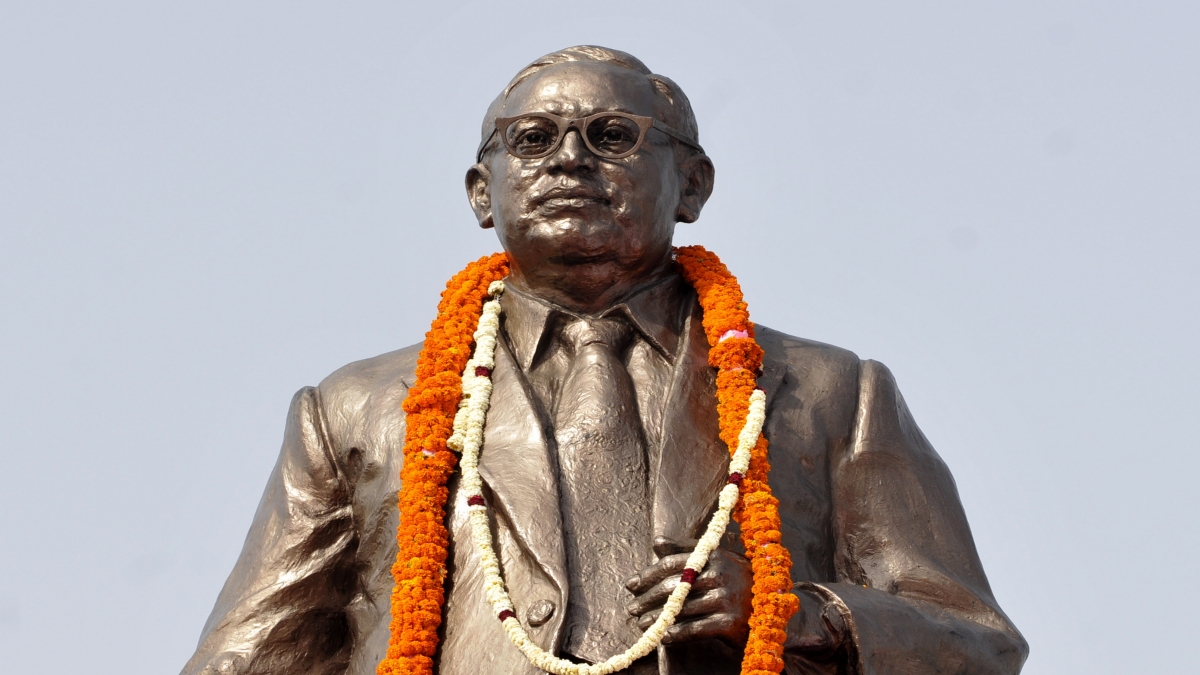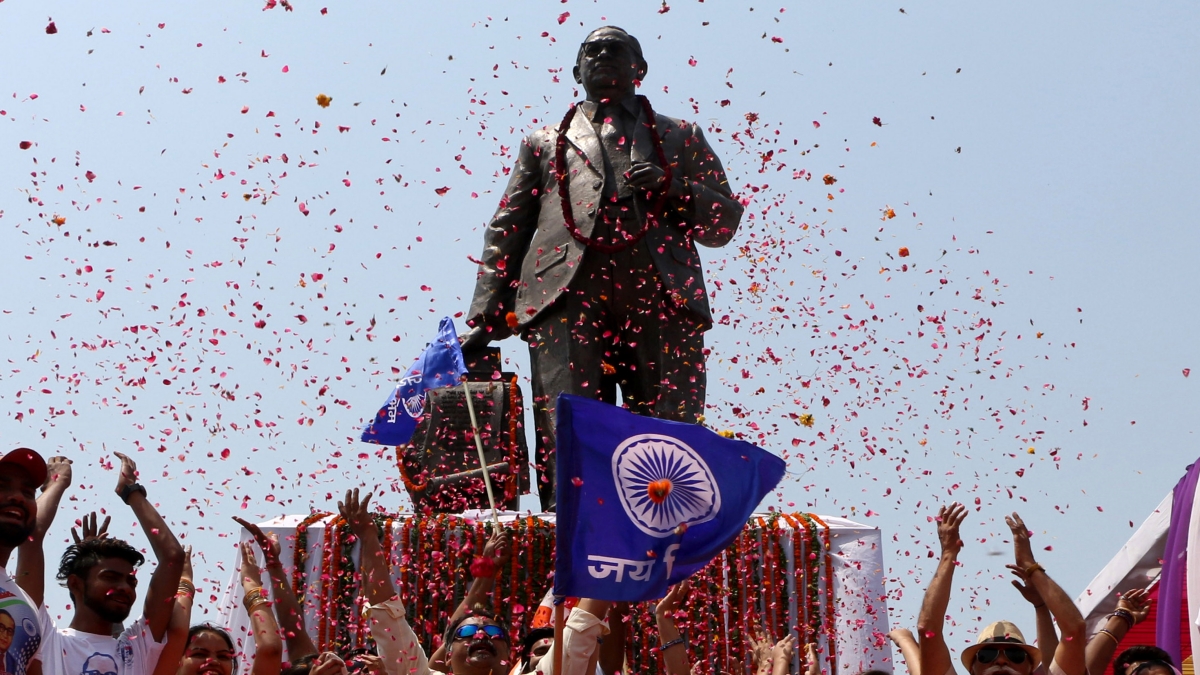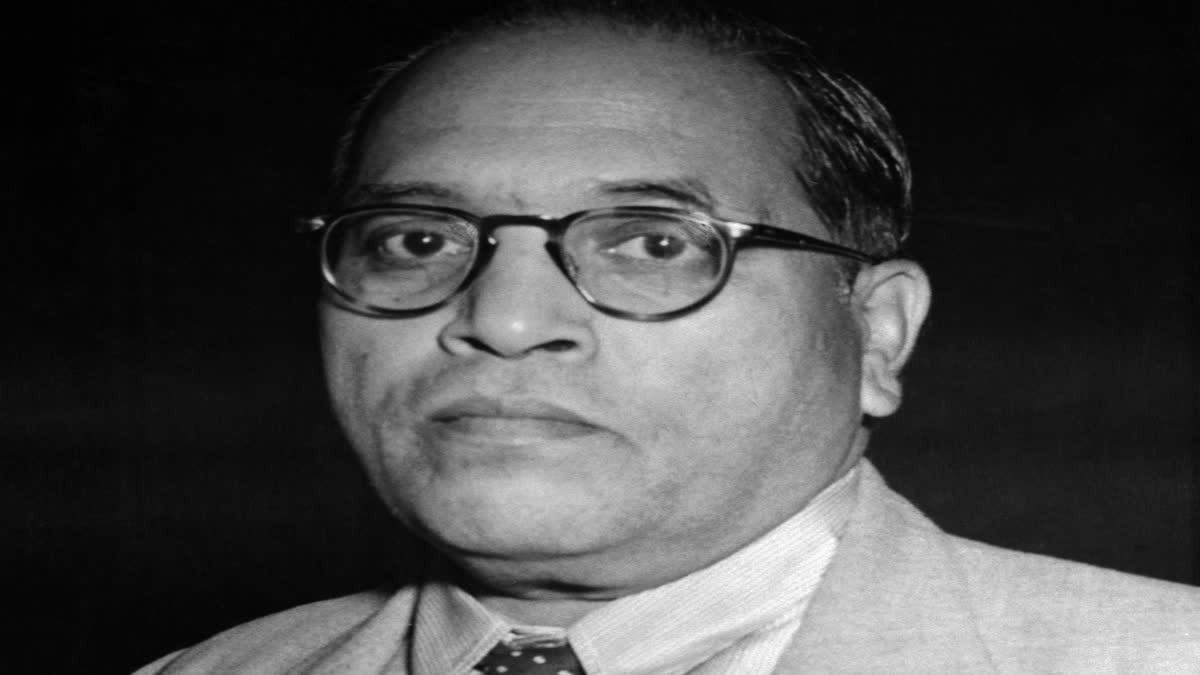Hyderabad: Mahaparinirvan Diwas is observed annually on December 6 to commemorate the death anniversary of Dr B.R. Ambedkar, a towering figure in Indian history. As the chief architect of the Constitution of India, Ambedkar's influence is not limited to India but also across many parts of the world. His roles as an economist, politician, and social reformer have played a significant role in shaping the society. His impact on the Dalit Buddhist movement, women's rights, and labour reform resonates to this day.
Life of Dr B.R. Ambedkar-
Ambedkar's life is a tapestry of resilience and intellectual prowess. Born in a Hindu family of the Mahaar caste in Maharashtra, he later embraced Buddhism in 1956, leading to a significant conversion of his followers.
He received his education at prestigious institutions like Columbia University in the United States and the London School of Economics in the United Kingdom. His journey reflected a quest for knowledge transcending geographical boundaries. Initially named Ambawadekar, his appellation changed to 'Ambedkar' under the guidance of a teacher. Proficient in nine languages, his 20-page autobiography, "Waiting for a Visa," became a textbook at Columbia University.
Ambedkar's contributions include instrumental involvement in the formation of the Reserve Bank of India. His conceptualisation aligned with recommendations to the Hilton Young Commission based on his seminal work, "The Problem of the Rupee – Its Origin and Its Solution." A scholarship from the ruler of Baroda, Sayajirao Gaekwad III, facilitated his US education, and later, he was urged to join Baroda Public Services.
Working on the all-White Simon Commission for constitutional reforms in British India showcased Ambedkar's early involvement in shaping the nation's destiny. Noteworthy among his labour reforms was the proposition to shift from a gruelling 14-hour workday to an eight-hour one. His advocacy extended to maternity benefits for women labourers, protection for children in labour, and prohibiting women from working in underground coal mines.
Ambedkar's enduring legacy is encapsulated in his pivotal role in crafting the Constitution of India—a monumental endeavour spanning two years and 11 months. Revered as the chief architect, his vision laid the groundwork for the world's largest democracy.
As the first Law Minister of independent India, Ambedkar's principled stance led to his resignation when Parliament opposed his women's rights bill. Despite challenges, his teachings continue to resonate, with followers using the salutation "Jai Bhim" to honour his contributions.

Social reform works by Dr Ambedkar-
Ambedkar, a key architect of India's constitution, dedicated his life to social reform, leaving an indelible mark on the country's socio-political landscape. At the forefront of his endeavours was the Mahad Satyagraha movement, a relentless struggle aimed at securing fundamental human rights for the Dalit community.
Originating from the denial of Dalits' access to water from the chowder tank in Mahad, this movement gained momentum under Ambedkar's leadership, leading to the Mahad Municipality passing a resolution in 1927 that granted all individuals, regardless of caste, the right to use the tank's water.
Ambedkar is also celebrated for his prolific writings and the establishment of organisations like the Bahishkrit Hitkarini Sabha. Through newspapers such as Mook Nayak, Bahishkrit Bharat, and Samta Janata, he aimed to combat untouchability, developing awareness and challenging societal norms.
In 1924, he founded the Bahishkrit Hitkarini Sabha, which not only worked towards eradicating untouchability but also set up educational initiatives, including free schools, reading rooms, and libraries.
Ambedkar's vision also focused on the reconstruction of society, a vision grounded in the principles of liberty, equality, and fraternity—ideals inspired by the French Revolution. He sought to liberate Indian society from the shackles of the caste system, advocating for a reformed and egalitarian social order.
Education emerged as a linchpin in Ambedkar's strategy for social emancipation. Ambedkar recognised that widespread education was integral to breaking the chains of social injustice, he championed the slogan 'Educate, Agitate, Organize.'
The People's Education Society, established in 1945, became a vehicle for boosting his educational goals, giving rise to numerous schools, colleges, hostels, and educational institutions dedicated to uplifting the underprivileged.
Ambedkar's influence extended to the political realm, where he transformed a class-based movement into a nationwide revolutionary force. His advocacy for a separate electorate for Dalit people during the British colonial period reflected his commitment to securing political rights. Later, as the chairman of the drafting committee of independent India's constitution, he ensured provisions for the welfare and development of marginalized communities, introducing reservations in areas like employment and education.
The economic dimension of Ambedkar's reformist agenda encompassed land reforms and industrialization. Emphasizing the need for extensive land reforms, he viewed an equitable agricultural system as vital for societal development. Advocating for nationalization of land and the formation of cooperatives, Ambedkar sought to create a just agricultural framework.
Simultaneously, he recognized the importance of industrialisation in absorbing surplus labour from agriculture, underlining the necessity for large capital investments to boost productivity.
As a revolutionary freedom fighter, Ambedkar stood shoulder-to-shoulder with figures like Jawaharlal Nehru and Mahatma Gandhi. His leadership in the Dalit Buddhist campaign exemplified his unwavering dedication to securing equal human rights and betterment for the marginalized.

Contribution to Constitution making-
The Constitution of India and the process of its drafting are often seen as synonymous with Ambedkar. He is often referred to as the father of the Indian Constitution and is probably the most famous of the members of the Constituent Assembly.
Through his positions and his speeches in the Assembly, Ambedkar became a key figure in India's constitutional process. He was the President of the most important committee of the Assembly - the drafting committee - and a member of other important committees. As its President, he had to defend the constitutional project drawn up by the committee and therefore participated in almost all the discussions.
Ambedkar wrote on behalf of the party's Scheduled Caste Federation and presented States and Minorities to the Sub-Committee on Fundamental Rights of the Constituent Assembly. The mini-constitution itself, states and minorities represented a strong constitutional protection for the Scheduled Caste community.
Ambedkar's speeches on various aspects of the Constitution were insightful, well reasoned and carefully researched. He also earned the support and respect of other members of the assembly, who appreciated his leadership in the constitutional project. It is therefore inevitable that such an enigmatic personality should receive the greatest tribute on the anniversary of his death. In 1956, he published his book, Annihilation Of Caste, which criticised the anti-untouchable and anti-Dalit practices and laws of the time. Dr BR Ambedkar was posthumously awarded the Bharat Ratna, India's highest civilian award, in 1990.



